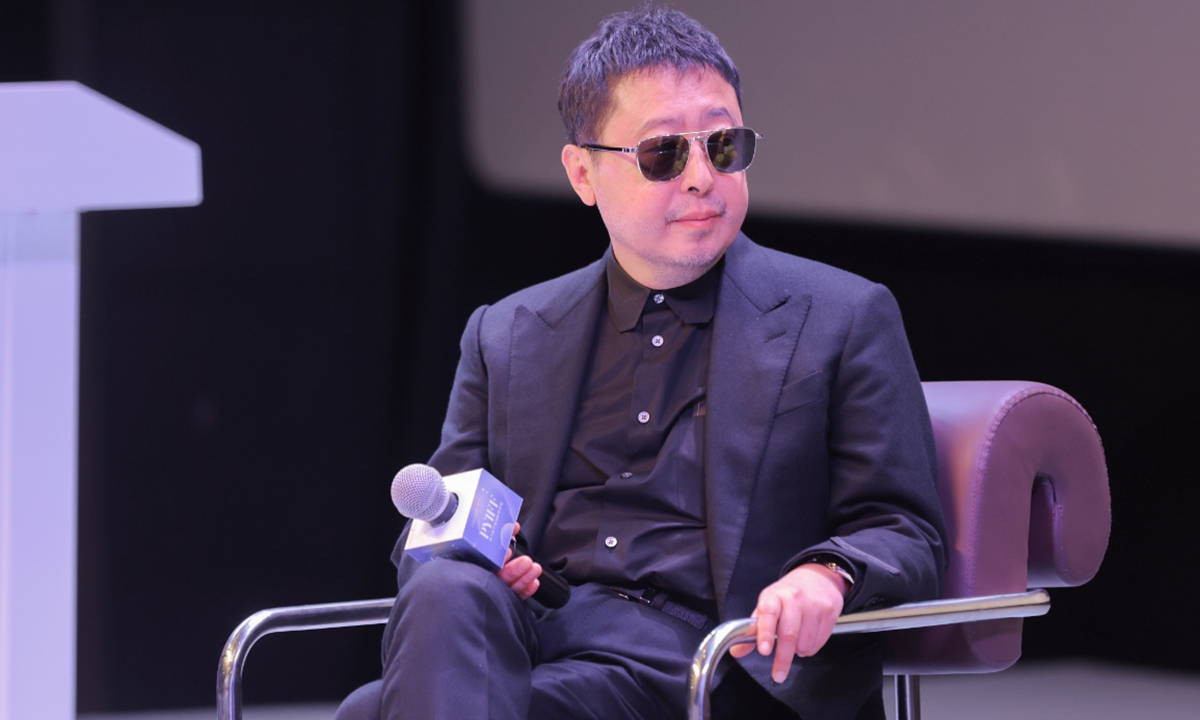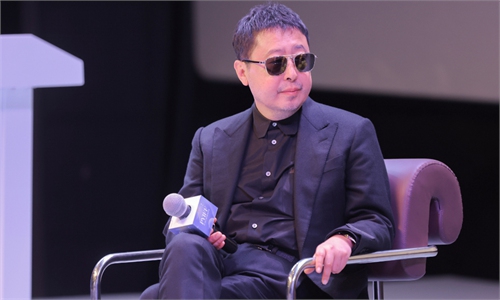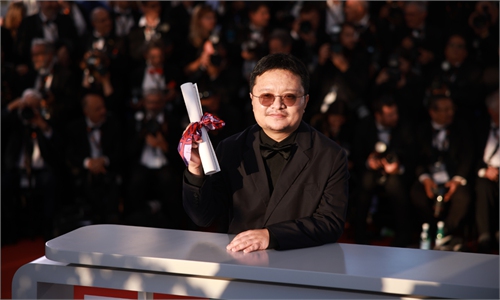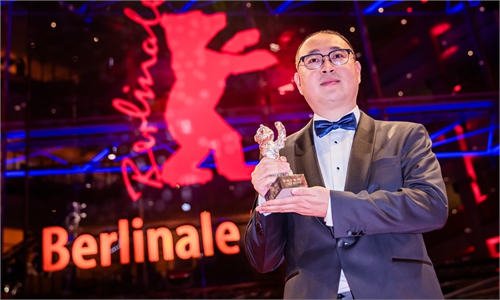
Chinese director Jia Zhangke Photo: IC
Editor's Note:
Chinese director Jia Zhangke (Jia) has created many films capturing his hometown of Fenyang. Yet, he never saw his "Shanxi stories" as mere regional narratives, but rather as reflections of ordinary people's shared destinies. During an interview with the Global Times reporter Li Yuche (GT), Jia shared what matters to him the most in his career, how he crafts stories, and his perspectives on literature and AI.
GT: Your films focus on the fate of ordinary people amid changing times. Why anchor your creative approach in such a microscopic perspective?
Jia: Throughout my creative process, I have always valued individual perspectives. I believe the "auteur quality" in cinema lies in an honest, personal reaction to reality - whether from a director or screenwriter. We shouldn't aim to film a "concept" but rather to capture "human experience." Concepts emerge gradually through the process of experience. Art cannot exist solely as an abstract idea without referring to reality.
However, observed reality must be transformed through imagination to become a reality tailored for film. I am a firm fictionalist because I believe fiction is the only path to truth.
GT: As a director, what is your entry point for reimagining reality?
Jia: For me, I was born and raised in a county town. The place I live functions as a node between rural and urban spheres. Things and people related to this node offer me inspiration. Behind it, it is not just me, but a vast number of ordinary people. From this perspective, I believe I tell the story of the majority, the story of collective subjectivity.
I think directors with different upbringings and emotional dispositions are concerned about different people. That's why I've always believed that China needs a large number of directors. Only through their diverse perspectives can we construct a relatively comprehensive narrative of China.
GT: How does your "Fenyang rural-urban experience" go beyond its regional specificity to resonate with more people?
Jia: The regional characteristics are undeniable, but nowadays, human destinies are becoming increasingly interconnected. Therefore, the realities witnessed in China are also the world's realities. I believe China, with its massive population and rapid development, is a country that cannot be ignored. Our appeal and the realities we face deserve to be heard globally.
To be honest, while many characters and stories in my films unfold in Shanxi or begin from there, I've never felt that I was making "Shanxi films."
I've always felt that I was making films about China. My deepest understanding of Shanxi's narrative is this: We are all part of a shared destiny, so the struggles, challenges, and diverse circumstances faced by people in Shanxi are national in scope.
For Chinese filmmakers, when telling stories about our nation, what matters most is conveying the genuine feelings within our hearts. Only then can we create narratives that move and convince others.
GT: As Global Times reporters, we care deeply about the Chinese people's perspectives of the world. We're curious about what motivated you to make the film The World?
Jia: The World was made in 2004, a period of intense globalization. An accidental opportunity came about due to my wife Zhao Tao's past employment at The Window of the World, a theme park in Shenzhen. This theme park revealed people's yearning to connect with the world at a time when international travel remained inaccessible to most. Yet the park's employees were puzzled by a great many practical problems, among which there were many personal choices, and the choices each person faced was also different.
I suddenly felt that the park was a dramatic space: a seemingly globalized landscape with individuals dealing with their life conundrums. The contrast between such a space and the real world made me particularly interested in shooting this film.
GT: If you were to remake The World now, what changes would there be?
Jia: If I were to film the park today, I would imagine it appearing as a wasteland. Especially since today's online information has, in some ways, transcended national boundaries. Additionally, with China's economic rise, international travel to genuinely experience the world has become much more accessible. Amid the assault of protectionism and conservatism on free-trade globalization, what we should film now is precisely this critical moment - as globalization collapses or nears its end, we should capture the human and social dilemmas it creates.
GT: As a director, how would you interpret the relationship between literature and film? What's most crucial in adapting literature to cinema?
Jia: For filmmakers, the most vital thing is possessing a literary mind-set. When we dedicate hours to telling a story on screen, it fundamentally originates from literary thinking. Through this literary thinking, we then develop visualized thinking. Through writing or reading, filmmakers should universally cultivate literary ability as an integral part of their cinematic craft.
GT: How do you perceive AI's impact on auteur cinema? What interactions have you had with it?
Jia: I always think that as a human, will our desire to capture the real world through a camera diminish because of AI? Absolutely not. Generating images on a computer can never replace my passion to observe the world. AI will certainly become a powerful tool, but it has to be built upon our physical filming. No matter how impressive AI-generated imagery becomes, the so-called "new content" is actually built from old materials. This is fundamentally different from holding a camera in the real world to capture nature, life, and authentic scenes.
Art thrives for one enduring reason: human need. Personally, I think I won't be greatly troubled because my need to face reality through a lens remains undiminished.
GT: What are the few things that matter most to you at this stage of your film career?
Jia: First, I want to continue exploring new methods for interpreting observed reality.
Honestly, throughout film history, you can see that emerging social conditions are hard to express with traditional methods. They push us to discover new cinematic languages, especially within today's evolving media landscape. We shouldn't dismiss or reject other visual formats. Cinema's greatness lies in its ability to absorb all new audiovisual experiences and transform itself creatively.
Second, I value foresight. There is a saying that "great films carry great prophecies," and I believe in that deeply. Many works by our pioneers indeed possess prophetic power, because they were more perceptive than anyone - able to capture emerging realities while contextualizing them within historical tracks. Prophecy means having the ability to place new phenomena within the continuum of social and human development, comprehend them, and only then, through that understanding, arrive at foresight.
Third, I value the ability to observe and emotional sensitivity. To be able to feel is so important to artists, regardless of era. If we don't cultivate this sensitivity and don't immerse ourselves in these experiences, we'll miss what's emerging. Every artist is a courier, tasked with sensitively delivering the newest truths of our time. This responsibility - and this ability - is something I deeply cherish.



